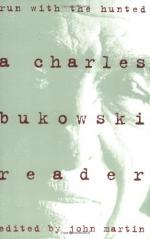|
This section contains 706 words (approx. 3 pages at 300 words per page) |

|
SOURCE: A review of Poems and Drawings, in Polish American Studies, Vol. XX, No. 1, January-June, 1963, pp. 55–6.
In the essay below, Swastek finds Bukowski's poetry eccentric but honest and authentic
Polish-American poetry, written in English, has had a variety of male and female voices pitched in different keys. The masculine contingent includes Uriel Joseph Piduch (Autumn Leaves, 1920), Raymond Kresensky (Emmaus, 1931), Edmond Kowalewski (Deaf Walls, 1933), Alan Edward Symanski (Against Death in Spring, 1934), John H. Drechney (Nature Smiles, 1947), Joseph Cherwinski (No Blue Tomorrow, 1952), Zygmunt Kurowski (A Collection of Thoughts, 1953), and Conrad Lancucki (The House by the Sea, 1958)—to mention only the more notable writers and their earliest published collections of poems and verses.
Recently a new voice has joined this male poetic chorus, and it sings not only in a different pitch but also a melody distinctively its own. It is the voice of Charles Bukowski, poem-maker, convention-breaker, and presently the...
|
This section contains 706 words (approx. 3 pages at 300 words per page) |

|


